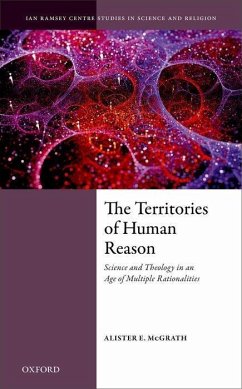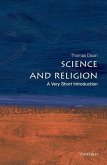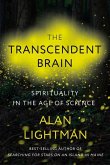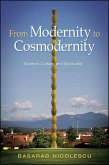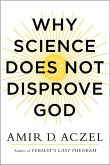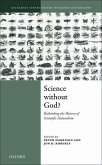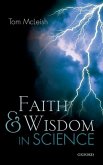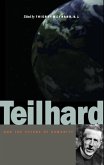Alister E McGrath
Territories of Human Reason
Science and Theology in an Age of Multiple Rationalities
Alister E McGrath
Territories of Human Reason
Science and Theology in an Age of Multiple Rationalities
- Gebundenes Buch
- Merkliste
- Auf die Merkliste
- Bewerten Bewerten
- Teilen
- Produkt teilen
- Produkterinnerung
- Produkterinnerung
The Territories of Human Reason is the first major study to explore the emergence of multiple situated rationalities. It focuses on the relation of the natural sciences and Christian theology, but its approach can easily be extended to other disciplines. It provides a robust intellectual framework for discussion of transdisciplinarity, which has become a major theme in many parts of the academic world. McGrath offers a major reappraisal of what it means tobe 'rational' which will have significant impact on older discussions of this theme. He sets out to explore the consequences of the…mehr
Andere Kunden interessierten sich auch für
![Science and Religion: A Very Short Introduction Science and Religion: A Very Short Introduction]() Thomas DixonScience and Religion: A Very Short Introduction11,99 €
Thomas DixonScience and Religion: A Very Short Introduction11,99 €![The Transcendent Brain The Transcendent Brain]() Alan LightmanThe Transcendent Brain30,99 €
Alan LightmanThe Transcendent Brain30,99 €![From Modernity to Cosmodernity From Modernity to Cosmodernity]() Basarab NicolescuFrom Modernity to Cosmodernity104,99 €
Basarab NicolescuFrom Modernity to Cosmodernity104,99 €![Why Science Does Not Disprove God Why Science Does Not Disprove God]() Amir AczelWhy Science Does Not Disprove God24,99 €
Amir AczelWhy Science Does Not Disprove God24,99 €![Science Without God? Science Without God?]() Peter HarrisonScience Without God?137,99 €
Peter HarrisonScience Without God?137,99 €![Faith and Wisdom in Science Faith and Wisdom in Science]() Tom McLeishFaith and Wisdom in Science22,99 €
Tom McLeishFaith and Wisdom in Science22,99 €![Teilhard and the Future of Humanity Teilhard and the Future of Humanity]() Teilhard and the Future of Humanity70,99 €
Teilhard and the Future of Humanity70,99 €-
-
-
The Territories of Human Reason is the first major study to explore the emergence of multiple situated rationalities. It focuses on the relation of the natural sciences and Christian theology, but its approach can easily be extended to other disciplines. It provides a robust intellectual framework for discussion of transdisciplinarity, which has become a major theme in many parts of the academic world. McGrath offers a major reappraisal of what it means tobe 'rational' which will have significant impact on older discussions of this theme. He sets out to explore the consequences of the seemingly inexorable move away from the notion of a single universal rationality towards a plurality of cultural and domain-specific methodologies and rationalities. Thisgroundbreaking volume will provoke intense discussion and debate.
Hinweis: Dieser Artikel kann nur an eine deutsche Lieferadresse ausgeliefert werden.
Hinweis: Dieser Artikel kann nur an eine deutsche Lieferadresse ausgeliefert werden.
Produktdetails
- Produktdetails
- Verlag: Oxford University Press (UK)
- Seitenzahl: 300
- Erscheinungstermin: 3. März 2019
- Englisch
- Abmessung: 223mm x 141mm x 29mm
- Gewicht: 465g
- ISBN-13: 9780198813101
- ISBN-10: 0198813104
- Artikelnr.: 54804026
- Herstellerkennzeichnung
- Libri GmbH
- Europaallee 1
- 36244 Bad Hersfeld
- gpsr@libri.de
- Verlag: Oxford University Press (UK)
- Seitenzahl: 300
- Erscheinungstermin: 3. März 2019
- Englisch
- Abmessung: 223mm x 141mm x 29mm
- Gewicht: 465g
- ISBN-13: 9780198813101
- ISBN-10: 0198813104
- Artikelnr.: 54804026
- Herstellerkennzeichnung
- Libri GmbH
- Europaallee 1
- 36244 Bad Hersfeld
- gpsr@libri.de
Alister E. McGrath is Andreas Idreos Professor of Science and Religion and Director of the Ian Ramsey Centre for Science and Religion at the University of Oxford. After his doctoral research on molecular biophysics, he studied Christian theology, with a particular interest in developing understandings of the possible relationships between the natural sciences and theology. McGrath has published extensively in the field of science and religion, and been a significant voice in recent debates with writers such as Richard Dawkins and Christopher Hitchens over the rationality of religious faith, and its relation to a scientific culture. His publications include The Great Mystery: Science, God and the Human Quest for Meaning (2017), Inventing the Universe: Why We Can't Stop Talking about Science, Faith and God (2016), and Science and Religion: A New Introduction (2010).
* 1: Introduction: Science and Theology in an Age of 'Multiple Situated
Rationalities'
* Mapping the Territories of Human Reason
* Mapping the Territories of Science and Religion
* The Aim of this Book
* Part 1: Exploring the notion of Rationality
* 1: One Reason; Multiple Rationalities: The New Context of Discussion
* Shifting Notions of Rationality
* Rationality, Embodiment, and Embeddedness
* Reflections on the Cultural and Social Embeddedness of Rationality
* The Embodiment of Right Reason: The 'Wise'
* Concerns about Human Rationality
* One Reason; Multiple Rationalities
* Rationality, Ideology, and Power
* 2: Mapping Human Reason: Rationalities across Disciplinary Boundaries
* On the Correlation of Rationalities
* Scientism: The Natural Sciences as the Ultimate Rational Authority
* Multiple Perspectives on a Complex Reality
* Science and Theology: Distinct Perspectives on Reality
* Science and Theology: Distinct Levels of Reality
* 3: Social Aspects of Rationality: Tradition and Epistemic Communities
* Communities and their Epistemic Systems
* Rationality, Community, and Tradition
* Rationality and Dominant Cultural Metanarratives
* Science and Religion: Reflections on the Communal Aspects of
Knowledge
* Part II: Rationality in Science and Theology
* 4: Rational Virtues and the Problem of Theory Choice
* What is a theory?
* Inference to the Best Explanation
* Correspondence and Coherence as Theoretical Virtues
* Objectivity
* Simplicity
* Elegance and Beauty
* A Capacity to Predict
* 5: Rational Explanation in Science and Religion
* What Does it Mean to 'Explain'?
* Causality as Explanation
* Unification as Explanation
* Two Approaches to Explanation: Ontic and Epistemic
* Religious Explanation: Some General Reflections
* Religious Explanation: Ontic and Epistemic
* Theology, Ontology, and Explanation
* A Case Study: Aquinas's 'Second Way'
* The Image of God and Religious Explanation
* Understanding and Explaining: A Religious Perspective
* 6: From Observation to Theory: Deduction, Induction, and Abduction
* The Entanglement of Theory and Observation
* Logics of Discovery and Justification
* Deduction in the Natural Sciences
* Deduction in Christian Theology
* Induction in the Natural Sciences
* Induction in Christian Theology
* Abduction in the Natural Sciences
* Abduction in Christian Theology
* 7: Complexity and Mystery: The Limits of Rationality
* Mystery and Irrationality
* Mystery in Science
* Mystery in Christian Theology
* The Trinity as Mystery
* Mystery: An Invitation to Deeper Reflection
* 8: Rational Consilience: Some Closing Reflections on Science and
Christian Theology
* Towards a 'Big Picture': A Metaphysical Turn
* The Colligation of Insights
* A Case Study in Colligation: Science and Socialism
* A Case Study in Colligation: Science and Theology
* Rationality: A Cohesive Approach
* Conclusion
* Bibliography
Rationalities'
* Mapping the Territories of Human Reason
* Mapping the Territories of Science and Religion
* The Aim of this Book
* Part 1: Exploring the notion of Rationality
* 1: One Reason; Multiple Rationalities: The New Context of Discussion
* Shifting Notions of Rationality
* Rationality, Embodiment, and Embeddedness
* Reflections on the Cultural and Social Embeddedness of Rationality
* The Embodiment of Right Reason: The 'Wise'
* Concerns about Human Rationality
* One Reason; Multiple Rationalities
* Rationality, Ideology, and Power
* 2: Mapping Human Reason: Rationalities across Disciplinary Boundaries
* On the Correlation of Rationalities
* Scientism: The Natural Sciences as the Ultimate Rational Authority
* Multiple Perspectives on a Complex Reality
* Science and Theology: Distinct Perspectives on Reality
* Science and Theology: Distinct Levels of Reality
* 3: Social Aspects of Rationality: Tradition and Epistemic Communities
* Communities and their Epistemic Systems
* Rationality, Community, and Tradition
* Rationality and Dominant Cultural Metanarratives
* Science and Religion: Reflections on the Communal Aspects of
Knowledge
* Part II: Rationality in Science and Theology
* 4: Rational Virtues and the Problem of Theory Choice
* What is a theory?
* Inference to the Best Explanation
* Correspondence and Coherence as Theoretical Virtues
* Objectivity
* Simplicity
* Elegance and Beauty
* A Capacity to Predict
* 5: Rational Explanation in Science and Religion
* What Does it Mean to 'Explain'?
* Causality as Explanation
* Unification as Explanation
* Two Approaches to Explanation: Ontic and Epistemic
* Religious Explanation: Some General Reflections
* Religious Explanation: Ontic and Epistemic
* Theology, Ontology, and Explanation
* A Case Study: Aquinas's 'Second Way'
* The Image of God and Religious Explanation
* Understanding and Explaining: A Religious Perspective
* 6: From Observation to Theory: Deduction, Induction, and Abduction
* The Entanglement of Theory and Observation
* Logics of Discovery and Justification
* Deduction in the Natural Sciences
* Deduction in Christian Theology
* Induction in the Natural Sciences
* Induction in Christian Theology
* Abduction in the Natural Sciences
* Abduction in Christian Theology
* 7: Complexity and Mystery: The Limits of Rationality
* Mystery and Irrationality
* Mystery in Science
* Mystery in Christian Theology
* The Trinity as Mystery
* Mystery: An Invitation to Deeper Reflection
* 8: Rational Consilience: Some Closing Reflections on Science and
Christian Theology
* Towards a 'Big Picture': A Metaphysical Turn
* The Colligation of Insights
* A Case Study in Colligation: Science and Socialism
* A Case Study in Colligation: Science and Theology
* Rationality: A Cohesive Approach
* Conclusion
* Bibliography
* 1: Introduction: Science and Theology in an Age of 'Multiple Situated
Rationalities'
* Mapping the Territories of Human Reason
* Mapping the Territories of Science and Religion
* The Aim of this Book
* Part 1: Exploring the notion of Rationality
* 1: One Reason; Multiple Rationalities: The New Context of Discussion
* Shifting Notions of Rationality
* Rationality, Embodiment, and Embeddedness
* Reflections on the Cultural and Social Embeddedness of Rationality
* The Embodiment of Right Reason: The 'Wise'
* Concerns about Human Rationality
* One Reason; Multiple Rationalities
* Rationality, Ideology, and Power
* 2: Mapping Human Reason: Rationalities across Disciplinary Boundaries
* On the Correlation of Rationalities
* Scientism: The Natural Sciences as the Ultimate Rational Authority
* Multiple Perspectives on a Complex Reality
* Science and Theology: Distinct Perspectives on Reality
* Science and Theology: Distinct Levels of Reality
* 3: Social Aspects of Rationality: Tradition and Epistemic Communities
* Communities and their Epistemic Systems
* Rationality, Community, and Tradition
* Rationality and Dominant Cultural Metanarratives
* Science and Religion: Reflections on the Communal Aspects of
Knowledge
* Part II: Rationality in Science and Theology
* 4: Rational Virtues and the Problem of Theory Choice
* What is a theory?
* Inference to the Best Explanation
* Correspondence and Coherence as Theoretical Virtues
* Objectivity
* Simplicity
* Elegance and Beauty
* A Capacity to Predict
* 5: Rational Explanation in Science and Religion
* What Does it Mean to 'Explain'?
* Causality as Explanation
* Unification as Explanation
* Two Approaches to Explanation: Ontic and Epistemic
* Religious Explanation: Some General Reflections
* Religious Explanation: Ontic and Epistemic
* Theology, Ontology, and Explanation
* A Case Study: Aquinas's 'Second Way'
* The Image of God and Religious Explanation
* Understanding and Explaining: A Religious Perspective
* 6: From Observation to Theory: Deduction, Induction, and Abduction
* The Entanglement of Theory and Observation
* Logics of Discovery and Justification
* Deduction in the Natural Sciences
* Deduction in Christian Theology
* Induction in the Natural Sciences
* Induction in Christian Theology
* Abduction in the Natural Sciences
* Abduction in Christian Theology
* 7: Complexity and Mystery: The Limits of Rationality
* Mystery and Irrationality
* Mystery in Science
* Mystery in Christian Theology
* The Trinity as Mystery
* Mystery: An Invitation to Deeper Reflection
* 8: Rational Consilience: Some Closing Reflections on Science and
Christian Theology
* Towards a 'Big Picture': A Metaphysical Turn
* The Colligation of Insights
* A Case Study in Colligation: Science and Socialism
* A Case Study in Colligation: Science and Theology
* Rationality: A Cohesive Approach
* Conclusion
* Bibliography
Rationalities'
* Mapping the Territories of Human Reason
* Mapping the Territories of Science and Religion
* The Aim of this Book
* Part 1: Exploring the notion of Rationality
* 1: One Reason; Multiple Rationalities: The New Context of Discussion
* Shifting Notions of Rationality
* Rationality, Embodiment, and Embeddedness
* Reflections on the Cultural and Social Embeddedness of Rationality
* The Embodiment of Right Reason: The 'Wise'
* Concerns about Human Rationality
* One Reason; Multiple Rationalities
* Rationality, Ideology, and Power
* 2: Mapping Human Reason: Rationalities across Disciplinary Boundaries
* On the Correlation of Rationalities
* Scientism: The Natural Sciences as the Ultimate Rational Authority
* Multiple Perspectives on a Complex Reality
* Science and Theology: Distinct Perspectives on Reality
* Science and Theology: Distinct Levels of Reality
* 3: Social Aspects of Rationality: Tradition and Epistemic Communities
* Communities and their Epistemic Systems
* Rationality, Community, and Tradition
* Rationality and Dominant Cultural Metanarratives
* Science and Religion: Reflections on the Communal Aspects of
Knowledge
* Part II: Rationality in Science and Theology
* 4: Rational Virtues and the Problem of Theory Choice
* What is a theory?
* Inference to the Best Explanation
* Correspondence and Coherence as Theoretical Virtues
* Objectivity
* Simplicity
* Elegance and Beauty
* A Capacity to Predict
* 5: Rational Explanation in Science and Religion
* What Does it Mean to 'Explain'?
* Causality as Explanation
* Unification as Explanation
* Two Approaches to Explanation: Ontic and Epistemic
* Religious Explanation: Some General Reflections
* Religious Explanation: Ontic and Epistemic
* Theology, Ontology, and Explanation
* A Case Study: Aquinas's 'Second Way'
* The Image of God and Religious Explanation
* Understanding and Explaining: A Religious Perspective
* 6: From Observation to Theory: Deduction, Induction, and Abduction
* The Entanglement of Theory and Observation
* Logics of Discovery and Justification
* Deduction in the Natural Sciences
* Deduction in Christian Theology
* Induction in the Natural Sciences
* Induction in Christian Theology
* Abduction in the Natural Sciences
* Abduction in Christian Theology
* 7: Complexity and Mystery: The Limits of Rationality
* Mystery and Irrationality
* Mystery in Science
* Mystery in Christian Theology
* The Trinity as Mystery
* Mystery: An Invitation to Deeper Reflection
* 8: Rational Consilience: Some Closing Reflections on Science and
Christian Theology
* Towards a 'Big Picture': A Metaphysical Turn
* The Colligation of Insights
* A Case Study in Colligation: Science and Socialism
* A Case Study in Colligation: Science and Theology
* Rationality: A Cohesive Approach
* Conclusion
* Bibliography

